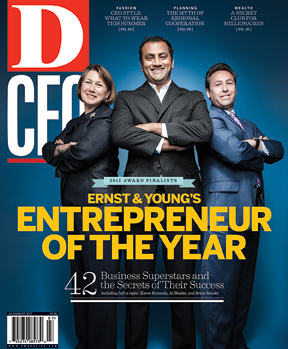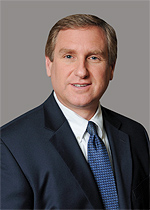
David K. White
President and CEO
in 2008, Medmark Services Inc. needed help. The then-20-year-old company, which was created to provide primary healthcare services to U.S. military veterans, had shifted focus to substance-abuse treatment clinics in an effort to tap into a growth market. But it was still losing money. Executives began seeking new leadership. They found it in David K. White.
“I had been part of a management team at a mature company,” says White, president and CEO. “Joining MedMark was an opportunity to take something small and grow it into something special.”
He reorganized the company and fine-tuned MedMark’s mission: To become a national substance-abuse treatment organization focused on growth, while maintaining high-quality care for its Veteran’s Administration patients. Today, through White’s persistence, the Lewisville-based company has 26 facilities across the country and nearly 450 employees. MedMark projects its 2012 revenue will reach $40 million.
After all the success, White’s biggest personal goal—to change the public’s perception of substance-abuse treatment centers—remains an uphill battle. “[Opiate addiction] is a growing problem,” he says. “Substance-abuse clinics are needed.”
— Shashana Pearson-Hormillosa
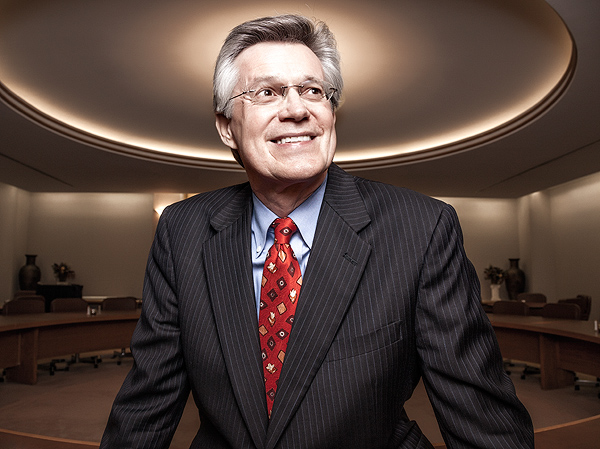
Methodist Health System
Stephen l. Mansfield
President and CEO
Methodist Health System’s Steve Mansfield has had a long career in healthcare. Even as a youngster, he couldn’t get away from it; his first job was mowing the lawn of a local hospital in his hometown in Tennessee.
CEO since 2006, Mansfield has taken the 86-year-old hospital system to new heights by more than doubling its revenue, from $460 million to $1 billion. During the same time period, he has also more than doubled the number of facilities, to seven hospitals and 21 clinics with more than 6,500 employees, more than 1,500 physicians, and about 1,800 volunteers.
The most important change he implemented? According to Mansfield, it’s the culture. “It touches everything,” he says. “It’s very important to me that every employee sees how his or her role connects to our mission values and strategy.”
Mansfield began by offering employees financial and motivational rewards for a job well done.
Although he has made some of the most influential changes at Dallas-based Methodist Health System to date, he has even bigger plans for the future; he aims to make it easier for patients to receive healthcare.
“Our system has to change to a more accountable—a more longitudinal healthcare system instead of one that’s episodic,” he says. “We’ve been at this about two-and-a half years, and we’re looking at an eight- to 10-year transition, realistically.”
— Jessica Melton
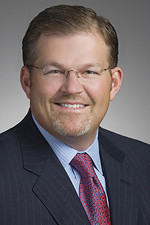
J.R. Thomas
CEO
J.R. Thomas likes to say that his healthcare services company is a 16-year, overnight success. MedSynergies helps hospital bureaucracies mesh with physician practices. The model has benefited from healthcare reform, which is driving physicians to seek the security of hospital relationships, whether through employment or affiliation.
“Looking back it’s much easier now than [the early, difficult days],” Thomas says. “We wouldn’t be the company we are today if we hadn’t gone through those experiences.”
Irving-based MedSynergies partners with hospitals and health networks nationwide, serving more than 7,400 providers. It has seen a compounded annual growth rate of 50 percent for the last three years.
In 2011, MedSynergies processed 11 million patient visits, running about $1 billion in cash through its systems.
Through a partnership with Allies in Service, the company has committed that 15 percent of new hires through 2013 will be veterans.
“Our employees have to be mission-oriented and team-oriented, and bring guts and heart” to the job, Thomas says of his 650 workers. “The military is a great way for us to source employees because they’re loyal and work hard. It’s not charity, but purely to build our business.”
—Karen Nielsen
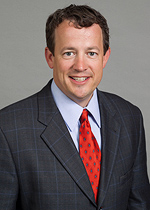
Daniel Drake
Chairman
Daniel (Dan) Drake carries a list of 25 failures in his pocket. Not because he dwells on his missteps, but because they remind him of important lessons learned. One of the most important: Don’t bet the ranch every time.
“Eighty percent of deals fail,” says Drake, chairman of MoJack Distributors, a lawn and garden products company based in Wichita, Kan. “I’ve learned from every failure.”
Drake’s career path has taken him from owning a landscaping company to running hedge funds—including one in China—to running a successful real
estate company focused on distressed debt. He also has several private equity investments, including MoJack.
He acquired the company after discovering the MoJack lawn mower lift in 2007. “I knew a guy who had the product and needed money,” he says. “I had a business model, so I bought the company.”
MoJack lifts are sold through 3,800 stores, including Tractor Supply, Home Depot, Lowes, Sears, and independent retailers.
“We’ve been very fortunate,” Drake says. “For me, the toughest thing was becoming a manager of people. But our people are the reason for our success.”
— Glenda Vosburgh
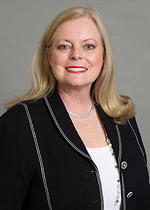
Mary Murcott
CEO
Mary Murcott is on a mission to bring foreign customer service jobs back to the United States. It’s not about nationalism, she says; it’s about economics. “We’re interested in [working with] companies that are tired of operating overseas,” says Murcott, CEO of Fort Worth-based NOVO 1, which provides customized contact center services for its clients. “We can show them how they can increase revenue 15 percent by handling customer service calls in the U.S.”
As a founding member of the nonprofit coalition “Jobs4America,” Murcott has pledged to create or bring 100,000 customer contact jobs back to the United States, and she has taken her quest right to the top.
In January, she was one of 12 chief executive officers invited to the White House to meet with President Barack Obama and Vice President Joe Biden as part of the “Insourcing American Jobs Forum.”
One thing she emphasized in her talks with the president was the need to improve the country’s high school graduation rate.
“In the past 10 years, these jobs have become more complex,” she says. “We need a 90 percent high school graduation rate in any town where we locate a center. The jobs that companies sent overseas aren’t the same jobs they’re bringing back.”
— Glenda Vosburgh
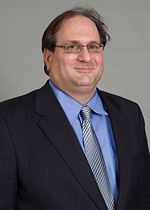
Bruce Ballengee
CEO
When 85 percent of your IT consulting business is by referral, finding and retaining talent becomes a huge proposition. Bruce Ballengee says he is creating a culture where new hires will want Pariveda Solutions to be their last job. The company is 100 percent employee-owned, reinforcing the idea that workers who are owners take better care of clients, the company, and each other.
“In order to have trusted relationships [with clients], we have to have something to offer—unique points of view, creative solutions to problems, and solutions to unmet needs,” Ballangee says.
Only a small fraction of his business comes from an RFP, or request for proposal, the traditional way of awarding IT consulting jobs. This approach is leading to projected revenue of $58 million this year, up from $42 million in 2011 and $29 million in 2010. The company now operates in 10 U.S. markets
and has more than 260 employees.
Ballengee, who has about 30 years of consulting experience, says he hopes Dallas-based Pariveda Solutions can help redefine the industry. “No one has ever done it this way, “ he says. “It will prove out over time, and other companies will adopt much of what we’re doing. It’s important to me personally that we have that success.”
— Karen Nielsen


